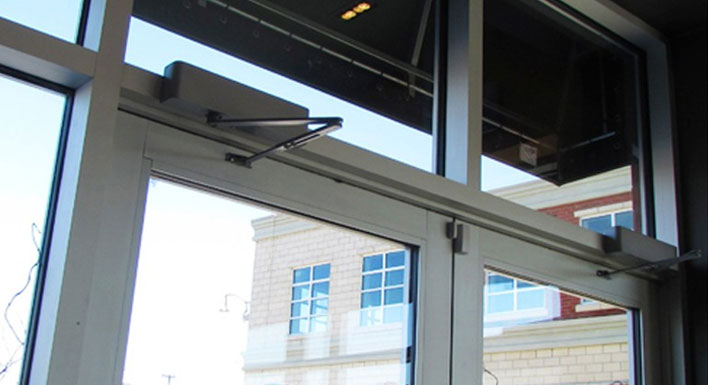Commercial door closers are integral components of building security and functionality, ensuring that doors close smoothly and securely after each use. While their operation may seem straightforward, understanding how commercial door closers work can help you appreciate their importance and make informed decisions about installation and maintenance. This comprehensive guide will explore the mechanics behind commercial door closers and provide insights into their significance in various commercial settings.

Before delving into the specifics of how commercial door closers function, it’s essential to grasp their primary purpose and components:
Now, let’s take a closer look at how these components interact to facilitate the smooth operation of commercial door closers.
Looking for a emergency commercial door repair near me service? Give us a call at: (416) 464-9099
A hydraulic mechanism responsible for controlling the door’s movement is at the heart of every commercial door closer. This mechanism consists of a hydraulic fluid-filled cylinder connected to the door frame and leaf. When the door is opened, hydraulic fluid is displaced within the cylinder, creating resistance that slows the door’s closing speed. The amount of resistance can be adjusted using valves to customize the closing speed and force according to specific requirements.
In addition to the hydraulic mechanism, commercial door closers often incorporate a spring mechanism to assist in closing the door. The spring stores energy when the door is opened and releases it gradually as it closes, ensuring a smooth and controlled movement. The combination of the hydraulic and spring mechanisms allows for precise closing speed and force adjustment, accommodating factors such as door size, weight, and environmental conditions.
The closing arm is the physical link between the door closer and the door itself, transferring the force generated by the hydraulic and spring mechanisms to control the door’s movement. Depending on the door closer’s configuration and mounting orientation, the closing arm may be mounted on the door’s push side, pull side, or top jamb. Different types of arms, such as regular, parallel, or slide track, accommodate various door and frame configurations.
Most commercial door closers come equipped with adjustment valves that allow for fine-tuning the closing speed, latch speed, and backcheck (the resistance applied forcefully when the door is opened). These valves can be adjusted using a screwdriver or hex key, enabling precise control over the door closer’s operation to optimize performance and user experience.
Now let’s explore the operating principles that govern commercial door closers function:
Commercial door closers play a vital role in enhancing security, accessibility, and energy efficiency in various commercial settings, including:
Ensuring smooth and consistent door operation enhances the shopping experience for customers while minimizing the risk of theft or unauthorized entry.
Commercial door closers promote privacy and security by automatically closing office doors after each use while facilitating easy movement between different building areas.
In healthcare settings, where hygiene and infection control are paramount, self-closing doors help maintain sterile environments by minimizing the risk of cross-contamination.
Door closers in schools and universities contribute to campus safety and security by ensuring that classroom and facility doors remain closed and locked when not in use.
In hotels and hospitality establishments, door closers provide guests privacy and security while improving energy efficiency by minimizing air conditioning or heating loss.
Commercial door closers are sophisticated mechanical devices that facilitate smooth and controlled door operation in various commercial settings. By understanding the mechanics behind commercial door closers and their significance in enhancing security, accessibility, and energy efficiency, you can make informed decisions about their installation, maintenance, and adjustment. Whether managing a retail store, office building, healthcare facility, or hospitality establishment, investing in high-quality commercial door closers can contribute to a safer, more efficient, and more comfortable environment for employees, customers, and visitors alike.
How do you maintain a commercial door? Read here or Give us a call at: (416) 464-9099
Trusted Door & Locksmith Expert in the GTA
30 mins arrival & your satisfaction guaranteed!




